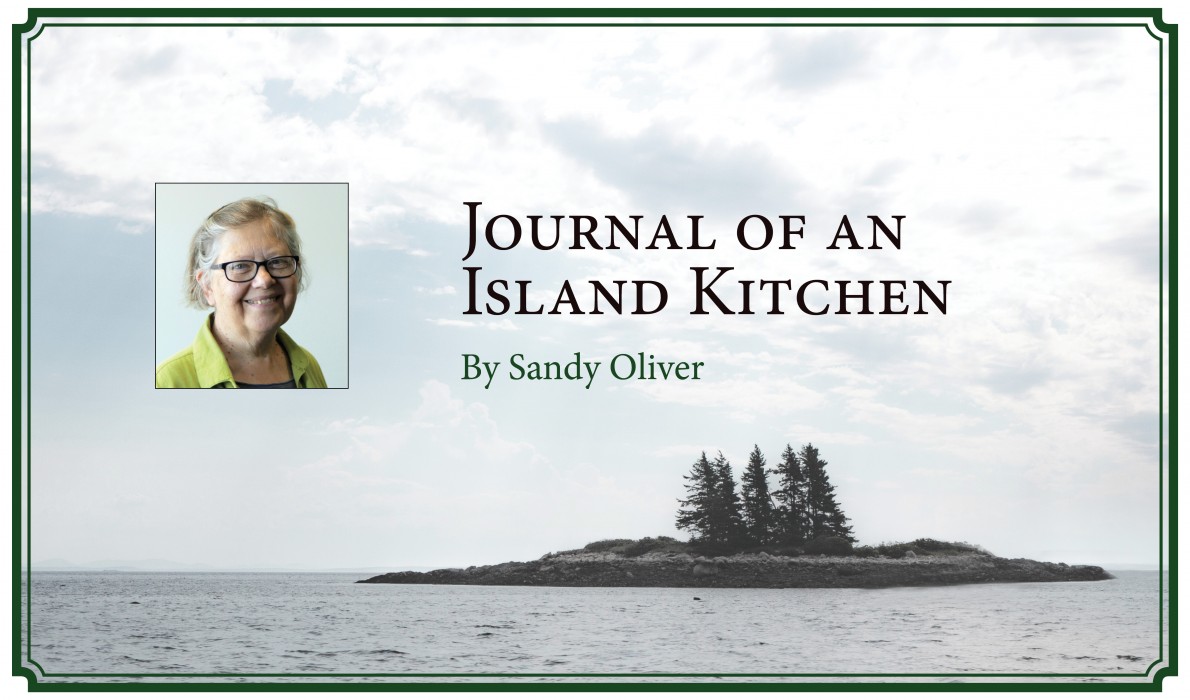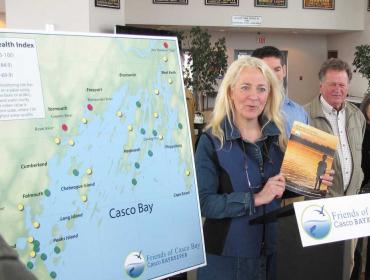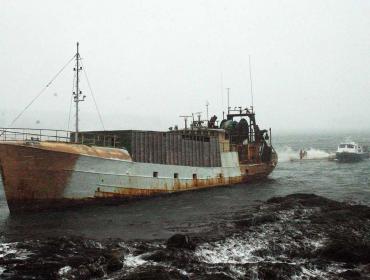Posted April 18, 2019
Last modified April 18, 2019
By Sandy Oliver
So far, 54 Maine towns have passed food sovereignty ordinances which allow the municipality to permit a producer (farmer) to sell most food—excluding meat and poultry—directly to consumers.
Plain old out-of-the-ground or off-the-plant produce has always been OK to sell and buy. The minute someone changes them, like peel a carrot and cut it into crudités, it crosses the line from commodity to value added, and is supposed to be prepared in a place—kitchen or facility—subject to inspection and licensing.
There are established standards for what constitutes a licensable kitchen, and most modern kitchens come pretty close, what with washable surfaces everywhere, two-bay sinks pretty common, and most towns eliminating cesspools and requiring septic systems in their place. You have to kick the cat and dog out, and take your smokes outside to qualify, and get a water test.
Overall, Mainers, and maybe especially Maine islanders, are a wicked commonsensical lot and so anxiety around who is preparing your food and how just doesn’t seem to come up much. Maybe it’s because many of us living in rural communities know each other more or less well and understand the impact we each have on one another.
So when we go to bean suppers we look forward to eating neighbors’ beans; at a church strawberry festival with homemade shortcake or strawberry ice cream, we don’t ask first if the kitchen was inspected. We trust our neighbor farmer to make toothsome cheese or butter, and observing the healthy and lively children in the household, consider the products perfectly safe. After all, why would each of us not take all reasonable precautions to fix food that won’t make us sick?
Common sense exchanges have long been part of daily life here. And we all know people who do, or used to, fix food for sale in their home kitchens.
There were on this island, and I’ll bet most other islands as well, lots of kitchen table crab pickers. Women here turned berries into jam and got paid to do it. All kinds of baked goods exchanged hands for money back in the day. I’ve never heard any sad tale of a demise due to this activity. In fact, between 1997 and 2017, there were nearly 5,000 reported cases of food poisoning in Maine and none of them attributable to local farms and producers. Huh.
When this ordinance is proposed in various places—right now here on Islesboro, in Camden, Rockport, Lincolnville—questions about food safety come up. I note that people have an awful lot of confidence in our industrial food system despite recalls of—for recent example—virtually every head of Romaine lettuce in the country because some had E. coli on it. (Lettuce, people! You don’t want to ask how that happened.)
Every package of chicken has safe handling instructions on it as if we had a loaded gun in our hands. Why can’t commerce give us chicken that is so safe that a warning isn’t necessary? Plain fact is that you can’t safely handle hundreds—yea millions—of chickens in a processing plant out in goodness knows where even if federal inspectors are on hand.
Will a water test make it better? Victuallers in Maine must plunk down $55 for a food safety test to learn whether their water has E. coli or nitrates in it. The real baddies—like arsenic or radon—don’t come under scrutiny unless you spend $125 to $295, not required. Anyway, a water test can give you different results from the same well after a few days of rain. If a friend or family gives you a jar of jam for Christmas or invites you to supper, do you ask if they have had their water tested before you eat?
Raw milk is the scariest of all. We grew up in the 20th century being warned of dangers of raw milk, so that it seems to be received wisdom. In Maine, we can buy raw milk legally from farmers whose herds are tested more frequently than if the milk were simply pasteurized. We don’t have dairy cows yet on our island, but if we did, I’d rely on farmers’ own care for themselves and their families to deliver up safe milk.
The blessing of this ordinance is that I get to take personal responsibility for my food choices and purchases, and that I get to rely on how well I know and trust my neighbors. My town will have no liability if something goes wrong. We get to spread the health and wealth of local food around our neighborhoods instead of it flowing to far off producers who want my money but care minimally about my safety and well-being.
Sandy Oliver is a food historian who lives, writes, gardens, and cooks on Islesboro.

Contributed by




